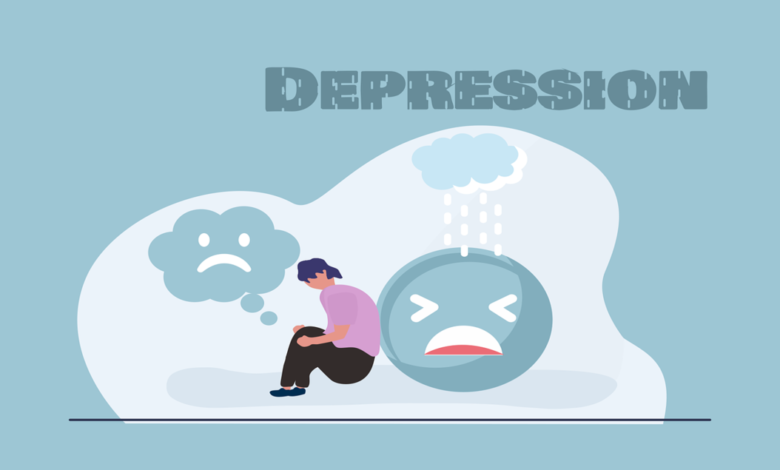Top Tips on How to Improve Mental Strength

It seems that some people recover from failures and setbacks quickly, while others have a much more difficult time doing so. What do you do when you are knocked down by life? Do you quickly get back up and adjust to the new situation? Can you handle this challenge, or are you totally overwhelmed and unsure of your abilities? If the latter is the case, don’t worry. As a matter of practice, dedication, and hard work, it is possible to develop mental resilience. Our resilience is often tested when life circumstances change abruptly and for the worse, such as the death of a loved one, losing our job, or ending a relationship. As a result, they can serve as opportunities to become even stronger. Continue reading to learn how to build and improve your mental resilience and deal effectively with life’s obstacles.
Table of Contents
How to Improve Mental Strong?
In spite of stressful situations, demands, and obstacles, mental strength refers to an individual’s ability to perform their best regardless of the circumstances. Being mentally strong will help you live the best life possible. Mental health must be developed through the use of mental tools and practices, much like building our physical muscles at the gym by lifting weights. A healthy mental state allows us to enjoy life, maintain meaningful social connections, and feel good about ourselves. In addition, freedom allows us to take risks, try new things, and adapt to any challenging situations life may throw at us. Mental strength is something that individuals who prioritise personal development can gain over time. In the same way that we experience physical benefits from working out and eating healthily, we must develop healthy mental habits if we wish to experience mental health gains. Additionally, if we want to improve our physical health, we must also eliminate harmful behaviors such as eating junk food, and if we want to improve our mental health, we must stop feeling sorry for ourselves. It is possible for us all to become mentally stronger – just as we would if we were trying to build physical strength! Also, Read: How to take care of your child’s mental health
How to Strengthen Mental strength?
The term “resilience,” which is widely used in regard to healthy mental health, is really derived from engineering, where it refers to a substance’s or object’s ability to spring back into shape. A human being needs flexibility and strength to be resilient, just like a material object. In a related sense, Mental Toughness refers to the ability to remain focused and determined despite adversity. When a person is psychologically tough, they view difficulty and adversity as opportunities rather than threats and are confident and positive no matter what life throws at them. Psychological toughness requires some level of resilience, but not all resilient people are mentally tough. Mental toughness is part of an approach to climbing resilience if you think of it as a metaphor. You can be mentally tough when you choose not to identify with your thoughts or feelings when they arise. Next, you should be courageous enough to look at the situation from a positive perspective. The approaches for increasing mental toughness are organised around five themes:
- Thinking Positively
- Anxiety Management
- Visualization
- Goal-Setting and Attention Control
Gaining mental toughness, like developing mental strength, necessitates self-awareness and commitment. Individuals who are mentally tough appear to accomplish more than those who are mentally sensitive and to be happier.
Mental Strength Exercises to Stop Overthinking
Control
This is the degree to which you believe you have control over your life, especially your emotions and sense of purpose in life. Your self-esteem might be considered the control component. To be high on the Control scale means to be at ease in your own skin and to know who you are. You can manage your emotions, which means you’re less likely to expose your emotional state to others, and you’re less distracted by the emotions of others. Being low on the Control scale indicates that you may believe that events happen to you and that you have no control or influence over what happens.
Commitment
This is the extent of your particular concentration and dependability. To be high on the Commitment scale, you must be able to create goals and continuously achieve them without becoming sidetracked. A high Commitment level implies that you are skilled at developing routines and habits that foster success. The Control and Commitment scores, when combined, represent the Resilience component of the Mental Toughness criteria. This makes sense because the ability to recover from failures necessitates a sense of control over one’s life and the ability to effect change. It also necessitates concentration and the capacity to set routines and goals that will help you get back on track with your chosen route. Being low on the Commitment scale implies that you may struggle to develop and prioritise goals, as well as to adapt routines or habits that are indicative of success. Other people or competing priorities may also easily distract you.
Challenge
Motivation and flexibility are measured by this metric. You are likely to be flexible and agile if you have a high Challenge score since you view challenges, change, and hardship as opportunities rather than threats.
Confidence
Your self-belief and your belief in your ability to influence others are the results of your belief in your potential to be productive and capable. The Confidence scale measures how confident you are in your ability to finish tasks effectively, deal with failures gracefully, maintain the routine, and even strengthen your commitment. In order to achieve greater happiness in life, you must have good mental health. Mental fitness includes skills such as toughness, resilience, and strength. It may take years of effort and dedication to build these muscles, but being mentally fit and resilient will pay off in all aspects of your life.




